Engaging community to protect the Pinole Creek Watershed: Assessment of trash impacts to promote a thriving ecosystem
California, Pinole, United States,
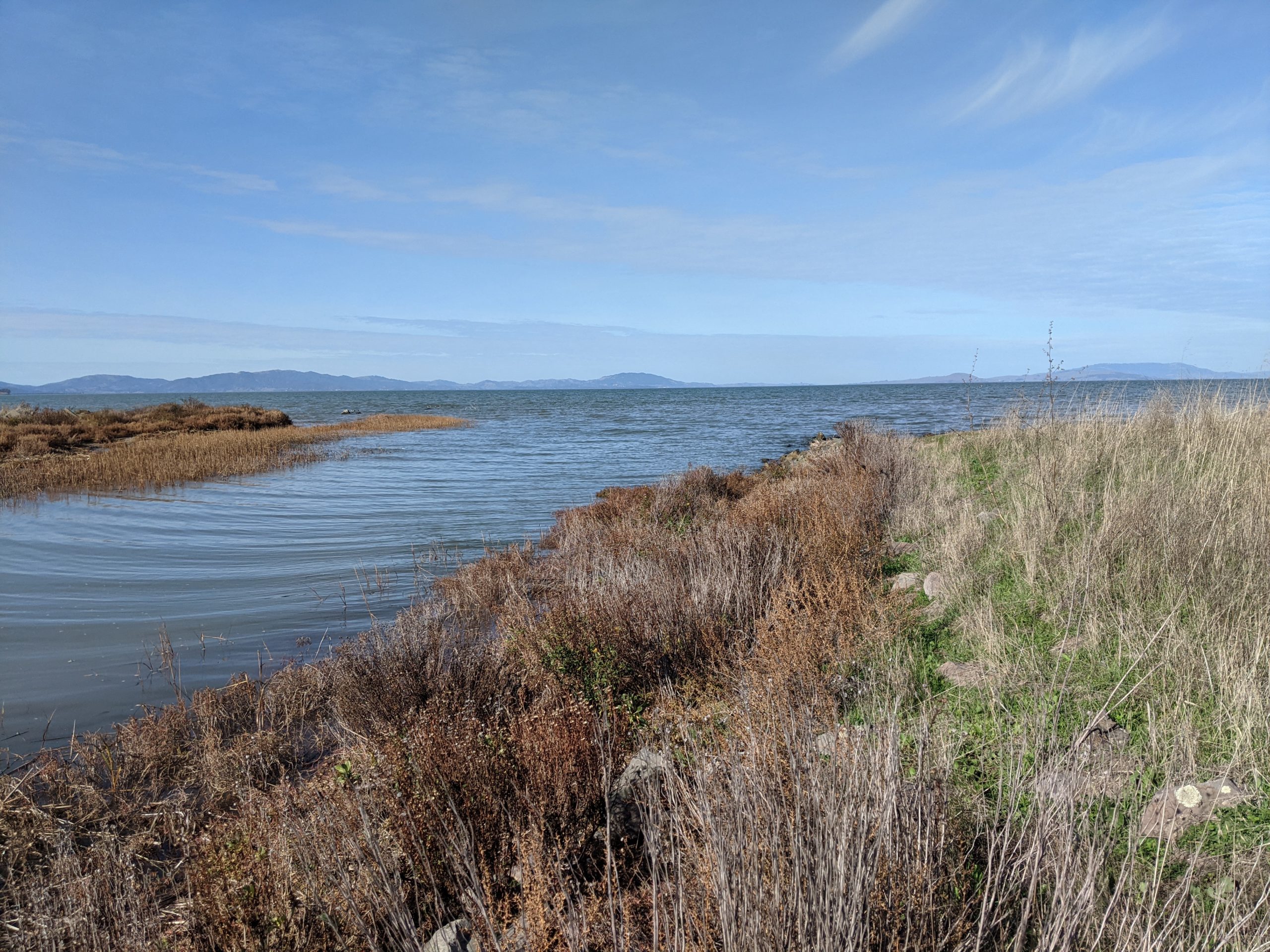
The mouth of Pinole Creek at San Pablo Bay. Credit: Ann Moriarty
Results
Results
- 12+ Lessons From A Community Science Project: goals, hurdles, what was easy, what was hard, and lessons learned.
- Cowger, Win, Itzel Gomez, Norma Martinez‐Rubin, Ann Moriarty, Todd Harwell, and Lisa Anich. “Community Science‐Informed Local Policy: A Case Study in Pinole Creek Litter Assessment.” Community Science 2, no. 1 (2023): e2022CSJ000017.
-
“Taking Trash into Their Own Hands – Community Science to Policy” Eos article
Description
The Challenge
The City of Pinole, California, is located in the eastern portion of the San Francisco Bay Area. Its northern border includes the San Pablo Bay in Contra Costa County. Natural features of the area are gently rolling hills and Pinole Creek, which empties into the San Pablo Bay. Pinole has an estimated population of 19,318, a land area of 5.32 square miles, and 6,745 households (U.S. Census QuickFacts). There are residential and commercial developments proximal to Pinole Creek, which traverses the city alongside ranches, houses, shopping areas, schools, and parks. As Pinole Creek flows from the upper watershed to San Pablo Bay, a vital migration route for the threatened anadromous steelhead trout, it picks up a disheartening amount of trash. Littering and illegal dumping of household trash and larger items such as furniture and vehicle tires are matters of local and regional concern. Non-compliance with countywide and state trash-reducing efforts for clean waterways risks environmental harm to creeks, bays, and oceans — all natural amenities for Pinole’s residents and visitors.
Friends of Pinole Creek Watershed (FoPCW) is a well-established local watershed group that has a long history of collaboration with various organizations, community groups, and residents that have vested interest in the health of Pinole Creek. As an organization and in collaboration with partners (including the City of Pinole, Contra Costa Resource Conservation District, Earth Team, and East Bay Municipal Utility District), FoPCW typically tackles the problem of trash by organizing regular clean-ups and promoting education and awareness related to the issue of trash and pollution in the creek and watershed. Pinole has an active community of unsung heroes that gather trash as they walk along the creek, which indicates that keeping the creek trash-free is important to them. We intend to harness and broaden that dedication throughout the community to promote a greater understanding of the impacts on human and ecosystem health, and build collaborative efforts to reduce waste and improve the health of Pinole Creek.
The Project
The project team envisions the Pinole Creek Watershed as a thriving ecosystem that benefits all social and ecological communities. We hope to establish a trash assessment and water quality monitoring program for Pinole Creek to determine the impacts of trash on creek health with the targeted goal of reducing those impacts on the watershed. Doing so is a community-driven response that aims to improve the environmental health of the creek and, in doing so, the quality of life for Pinole residents. This project has identified three overarching goals:
- Identify and understand sources, paths, and impacts of litter entering Pinole Creek;
- Engage people of all ages in trash monitoring and litter cleanup, thereby fostering a sense of environmental stewardship that endures well beyond project participation; and
- Inform policy development for the creation of a city-wide creek protection ordinance.
Outputs from this project will include:
- A map of the watershed identifying locations where illegal dumping and litter are common, and a characterization of the trash and water quality at each site;
- A community-engaged water quality monitoring plan for testing creek health;
- A report for students, residential, and commercial communities summarizing social and ecological impacts of litter in Pinole Creek; and
- A report for local government presenting science-based recommendations for trash-reduction programs and the creation of a city-wide creek protection ordinance.
Through this project, FoPCW plans to engage with various community partners like CCRCD, the City of Pinole, Earth Team (Pinole Valley High School Student Interns), Collins Elementary School, Ellerhorst Elementary School, and East Bay Municipal Utility District (EBMUD) in addition to other organizations, residents, and local merchants. With these partners, we intend to accomplish our project goals through various efforts, approaches, and activities including:
- Public outreach at community events such as Coastal Cleanup Day;
- Speaking at schools, the Pinole Library, and other community spaces to which we have been invited to address this project;
- Teaching local students and residents how to test water quality;
- Leading nature walks along the creek to teach the community about how trash impacts the health of the creek, bay, and ocean; and
- Reaching out to local merchants to help them reduce their trash impacts.
Timeline
This project will be completed over the course of 18 months beginning in January 2021. An estimated timeline is provided below:
- January-March 2021
- Scientist brought on board
- List of locations where illegal dumping and littering are common prepared
- Water quality and trash assessment data reviewed
- Communications to community partners to identify interest in joining planned project activities drafted
- April-June 2021
- Project Kick-Off/Communications Blast
- Draft Water Quality Monitoring Plan
- Earth Day Milestone Event TBD (“Creekside Tours” to recruit participants for project activities)
- July-September 2021
- Finalize and implement a water quality monitoring plan (students return to school, etc.)
- Data collection/water monitoring training
- Coastal Cleanup Milestone Event TBD
- October-December 2021
- Data collection continued
- Preliminary data analysis and interpretation
- Seek and identify future funding opportunities such as NFWF Five Star and Urban Waters Restoration Grant for continuing activities
- January-March 2022
- 2nd round of water quality monitoring in different parts of creek
- Draft map(s) and written reports
- April-June 2022
- Finalize project maps and reports (i.e., project outputs) for online posting and public dissemination
- Presentation of findings to partner groups and others
Project Team
Community Leaders
 Ann Moriarty (she/her) taught middle and high school life science for 10 years in Antioch, California, where she founded an award-winning environmental club. In 2001, she joined the Lawrence Hall of Science at UC Berkeley, developing informal education courses and teaching. She switched to FOSS (Full Option Science System), a nationally renowned science curriculum project, in 2004 and finished out her career there, retiring in 2018. Ann has lived close to Pinole Creek with her husband, Kent, for 30 years. She has a passion for engaging other Pinoleans in creek life and when she found out about FOPCW and the fabulous work they were doing, it was a natural fit. When she’s not watching for otters or steelhead trout in the creek, she’s picking up trash in the watershed and serving on the Pinole Planning Commission. At home, bees, chickens, and gardening keep her life full, in addition to cycling, church, and travel near and far.
Ann Moriarty (she/her) taught middle and high school life science for 10 years in Antioch, California, where she founded an award-winning environmental club. In 2001, she joined the Lawrence Hall of Science at UC Berkeley, developing informal education courses and teaching. She switched to FOSS (Full Option Science System), a nationally renowned science curriculum project, in 2004 and finished out her career there, retiring in 2018. Ann has lived close to Pinole Creek with her husband, Kent, for 30 years. She has a passion for engaging other Pinoleans in creek life and when she found out about FOPCW and the fabulous work they were doing, it was a natural fit. When she’s not watching for otters or steelhead trout in the creek, she’s picking up trash in the watershed and serving on the Pinole Planning Commission. At home, bees, chickens, and gardening keep her life full, in addition to cycling, church, and travel near and far.
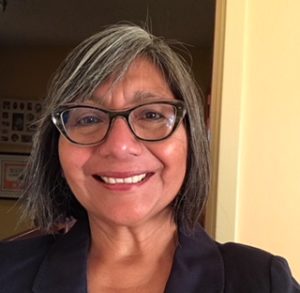 Norma Martínez-Rubin (she/her) is a Pinole City Councilmember and will serve as Mayor in 2020-2021. Her interest in ensuring that the Pinole Creek remains a healthy, valued asset to Pinole residents and neighbors reflects her appreciation for nature as a necessary element in residents’ quality of life. A thread in her academic training and career(s) in public health education, business administration, and program evaluation is data use to inform policy and the direction of publicly funded initiatives. She is an advocate for civic involvement and the creation of opportunities for public participation to foster learning about and care for the natural environment. Prior to holding elected office, Norma served on the Pinole Planning Commission (2009-2018). She earned a B.S. degree in Biology from Loyola Marymount University, a M.P.H. from University of California, Los Angeles, and a M.B.A. from John F. Kennedy University.
Norma Martínez-Rubin (she/her) is a Pinole City Councilmember and will serve as Mayor in 2020-2021. Her interest in ensuring that the Pinole Creek remains a healthy, valued asset to Pinole residents and neighbors reflects her appreciation for nature as a necessary element in residents’ quality of life. A thread in her academic training and career(s) in public health education, business administration, and program evaluation is data use to inform policy and the direction of publicly funded initiatives. She is an advocate for civic involvement and the creation of opportunities for public participation to foster learning about and care for the natural environment. Prior to holding elected office, Norma served on the Pinole Planning Commission (2009-2018). She earned a B.S. degree in Biology from Loyola Marymount University, a M.P.H. from University of California, Los Angeles, and a M.B.A. from John F. Kennedy University.
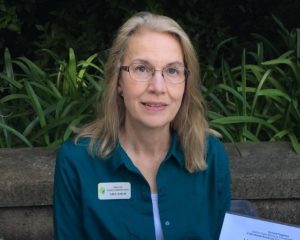 Lisa Anich (she/her) is a Watershed Conservation Manager for the Contra Costa Resource Conservation District (CCRCD) and has worked with several watershed groups in Contra Costa County. She coordinates activities for the Friends of Pinole Creek Watershed and works to implement their goals. She also monitors the Pinole Fish Passage Project for CCRCD and manages their internship program. Lisa has professional experience with hydrology and streamflow modeling and is enthusiastic about broadening public participation in science and stewardship.
Lisa Anich (she/her) is a Watershed Conservation Manager for the Contra Costa Resource Conservation District (CCRCD) and has worked with several watershed groups in Contra Costa County. She coordinates activities for the Friends of Pinole Creek Watershed and works to implement their goals. She also monitors the Pinole Fish Passage Project for CCRCD and manages their internship program. Lisa has professional experience with hydrology and streamflow modeling and is enthusiastic about broadening public participation in science and stewardship.
 Itzel Gomez (she/her) received a B.S. in Environmental Engineering from the University of California, San Diego and has a background in hydrology and water resources and environmental education. She is passionate about issues related to environmental justice and dismantling barriers that have historically kept people in marginalized communities from accessing nature and forming positive relationships with the outdoors. She joined Earth Team in 2018 and has worked with students at Pinole Valley High School and Antioch High School as their internship coordinator and mentor. Itzel grew up in San Pablo, a neighboring city to Pinole, and enjoys empowering young leaders in her community to become lifelong environmental stewards. Itzel finds that being connected to nature, whether tending to a garden or hiking up a mountain, is what keeps her energized to continue her work in this field.
Itzel Gomez (she/her) received a B.S. in Environmental Engineering from the University of California, San Diego and has a background in hydrology and water resources and environmental education. She is passionate about issues related to environmental justice and dismantling barriers that have historically kept people in marginalized communities from accessing nature and forming positive relationships with the outdoors. She joined Earth Team in 2018 and has worked with students at Pinole Valley High School and Antioch High School as their internship coordinator and mentor. Itzel grew up in San Pablo, a neighboring city to Pinole, and enjoys empowering young leaders in her community to become lifelong environmental stewards. Itzel finds that being connected to nature, whether tending to a garden or hiking up a mountain, is what keeps her energized to continue her work in this field.
Community Science Fellow
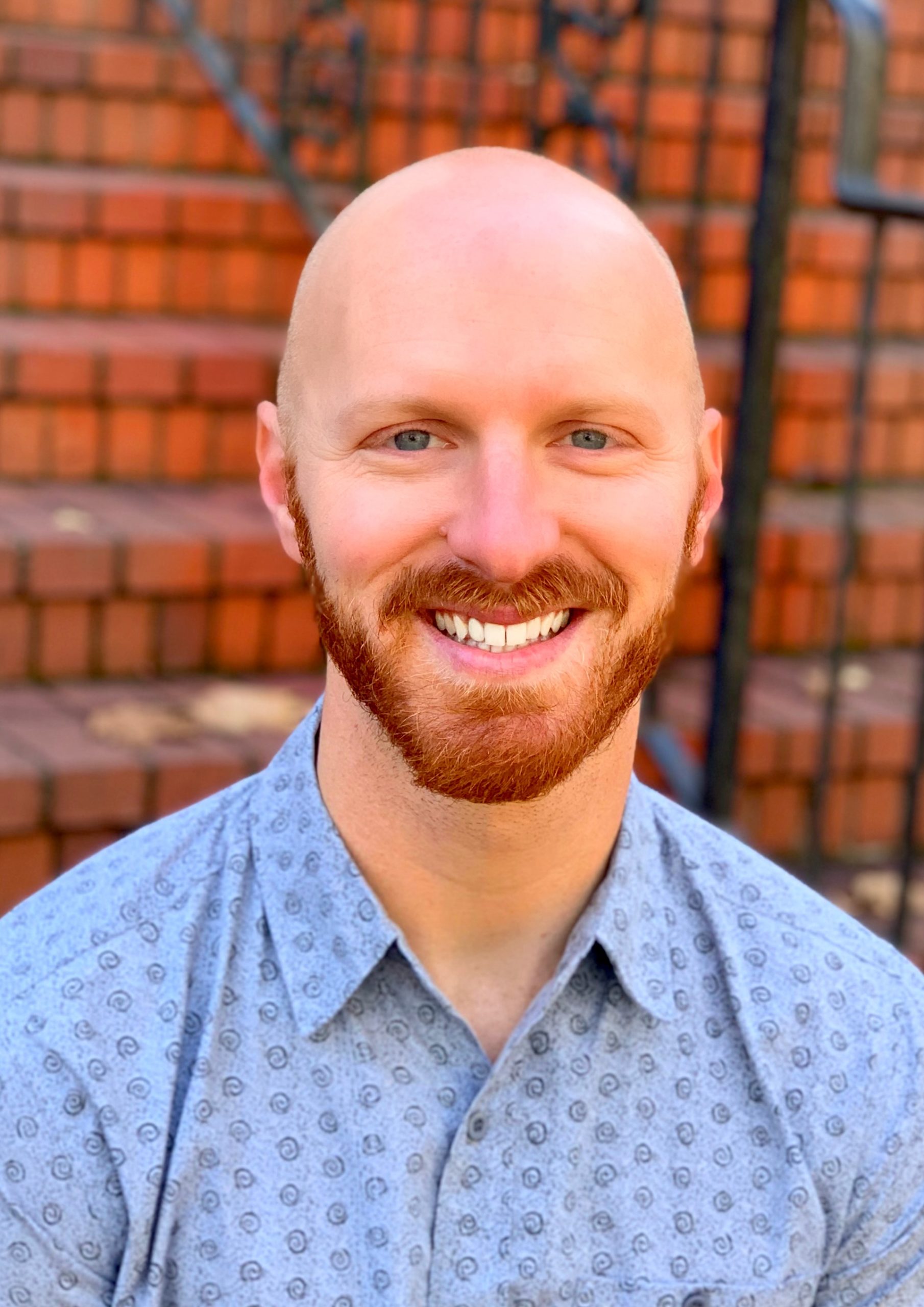 Todd A. Harwell (he/him) has a background in marine science and environmental education, He has taught middle school through college-level science, as well as served three years as a Peace Corps Volunteer in the coastal desert of Perú. He continues to engage in interdisciplinary work as a PhD candidate in the Environmental Sciences Graduate Program at Oregon State University. His research explores how citizen and community science programs contribute to developing and promoting science identities and relationships, particularly among the LGBTQ+ community. Beyond academic life, Todd enjoys exploring the natural wonders of the Pacific Northwest as well as discovering a plethora of Portland, Oregon’s urban quirks and spoiling his feline son, Keshito.
Todd A. Harwell (he/him) has a background in marine science and environmental education, He has taught middle school through college-level science, as well as served three years as a Peace Corps Volunteer in the coastal desert of Perú. He continues to engage in interdisciplinary work as a PhD candidate in the Environmental Sciences Graduate Program at Oregon State University. His research explores how citizen and community science programs contribute to developing and promoting science identities and relationships, particularly among the LGBTQ+ community. Beyond academic life, Todd enjoys exploring the natural wonders of the Pacific Northwest as well as discovering a plethora of Portland, Oregon’s urban quirks and spoiling his feline son, Keshito.
Community Scientist
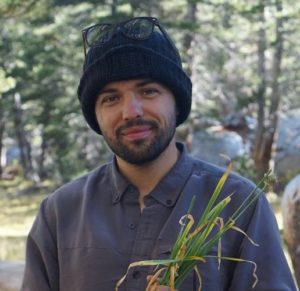 Win is a PhD candidate and NSF graduate research fellow at the University of California Riverside. He studies the sources, transport, and fate of plastic pollution in the environment. His science focuses on identifying solutions to plastic pollution and assessing their effectiveness. As an applied scientist, Win works with nonprofit groups like Let’s Do It World and 5 Gyres, government agencies like SCCWRP and the Ocean Protection Council, and academics to implement science in practice.
Win is a PhD candidate and NSF graduate research fellow at the University of California Riverside. He studies the sources, transport, and fate of plastic pollution in the environment. His science focuses on identifying solutions to plastic pollution and assessing their effectiveness. As an applied scientist, Win works with nonprofit groups like Let’s Do It World and 5 Gyres, government agencies like SCCWRP and the Ocean Protection Council, and academics to implement science in practice.
Collaborating Organizations
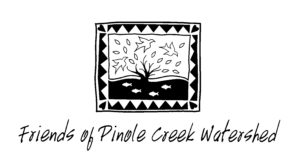 Friends of Pinole Creek Watershed (FoPCW) is a well-established local watershed group that aims to increase awareness and to provide quality educational opportunities for the general public to study the value of this natural resource, and to accumulate and afford financial support for these goals. Since 2001 we have been working with community members and partner organizations to promote and support the identification, assessment, monitoring, and overall restoration planning process of Pinole Creek along with its watershed and wetlands.
Friends of Pinole Creek Watershed (FoPCW) is a well-established local watershed group that aims to increase awareness and to provide quality educational opportunities for the general public to study the value of this natural resource, and to accumulate and afford financial support for these goals. Since 2001 we have been working with community members and partner organizations to promote and support the identification, assessment, monitoring, and overall restoration planning process of Pinole Creek along with its watershed and wetlands.
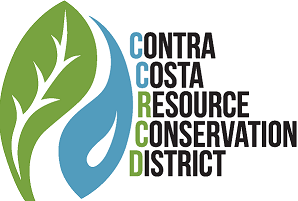
Contra Costa Resource Conservation District (CCRCD) is dedicated to managing soil, water, and air in close coordination with local partners. The District has maintained ties to agricultural producers since its founding in 1941, while evolving to meet the needs of Contra Costa County’s growing population and diversifying economy. CCRCD seeks to creatively address environmental challenges, including sea-level rise, wildland fires, trash and illegal dumping, and invasive species.
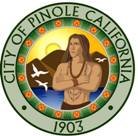 The City of Pinole is a general law city which was incorporated on June 25, 1903. The City is primarily a residential community located in the San Francisco Bay Area on the shores of San Pablo Bay in West Contra Costa County. Interstate-80, which traverses Pinole, connects the San Francisco/Oakland metropolitan area with Sacramento and points east
The City of Pinole is a general law city which was incorporated on June 25, 1903. The City is primarily a residential community located in the San Francisco Bay Area on the shores of San Pablo Bay in West Contra Costa County. Interstate-80, which traverses Pinole, connects the San Francisco/Oakland metropolitan area with Sacramento and points east
 Earth Team empowers urban youth to become lifelong environmental stewards through experiential education, skills development, and the building of community connections. Earth Team is committed to delivering quality service-learning projects by partnering with the strongest educational, environmental and government organizations. Earth Team students will think globally by using the vast amount of information offered, connect regionally by working with students from other communities, and act locally in community based projects.
Earth Team empowers urban youth to become lifelong environmental stewards through experiential education, skills development, and the building of community connections. Earth Team is committed to delivering quality service-learning projects by partnering with the strongest educational, environmental and government organizations. Earth Team students will think globally by using the vast amount of information offered, connect regionally by working with students from other communities, and act locally in community based projects.
This project is supported by funding from the Gordon and Betty Moore Foundation.
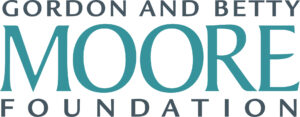
Status:
Complete,
Location:
California,
Pinole,
United States,
Managing Organizations:
No organizations
Project Categories:
Contamination/pollution,
Natural Resources,
Project Tags:
No tags
